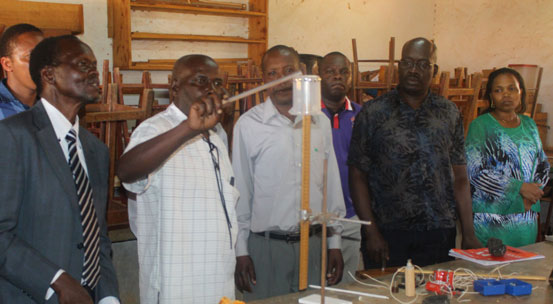
NAIROBI, KENYA: A skills and facility sharing training program run by the Nairobi based Centre for Mathematics, Science and Technical Education in Africa (CEMASTEA) is proving a boon as teachers in less endowed secondary schools get inspired and students effervesced in the process.
Teachers who have been through the program say interaction with counterparts from bigger, better enabled schools leaves a positive impact on their personality that trickles down to their students in the form of improved performance in mathematics, science and technology subjects.